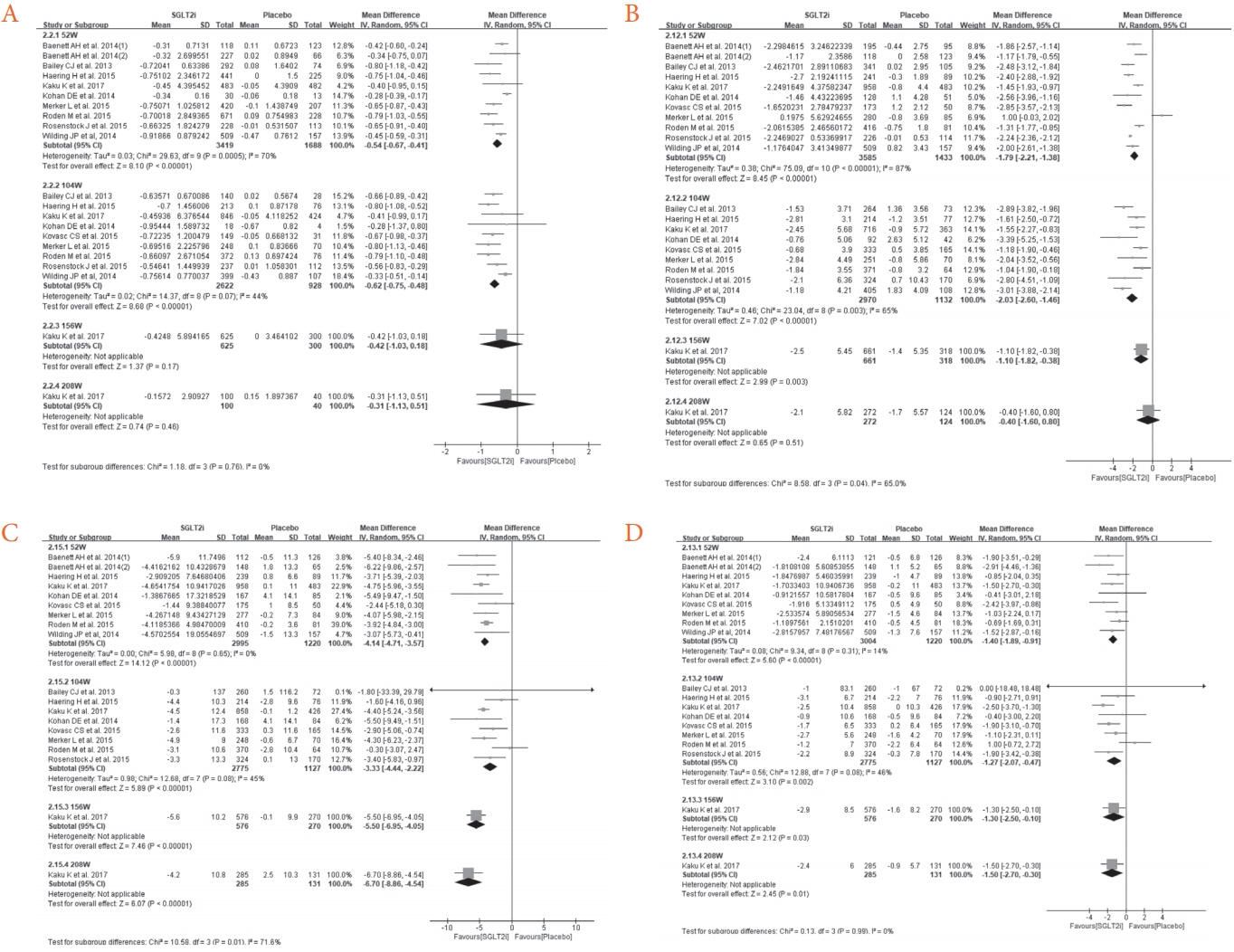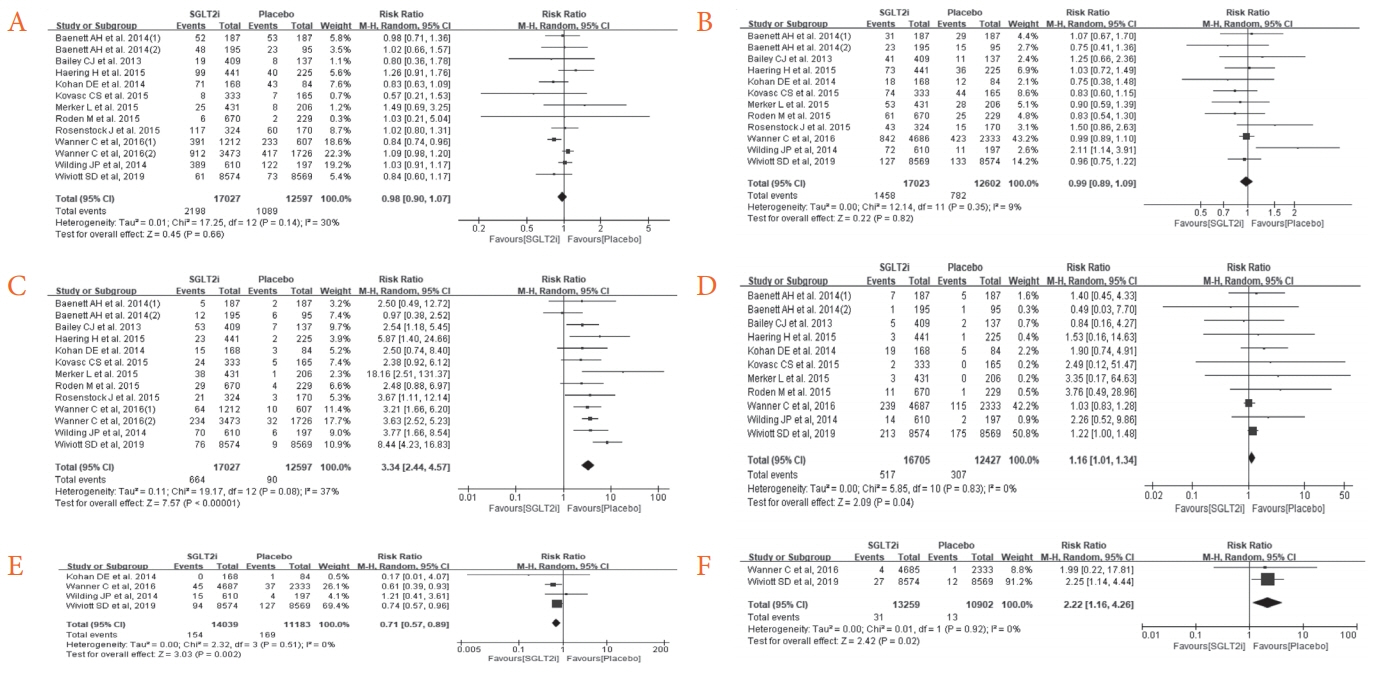J Korean Diabetes.
2020 Sep;21(3):105-115. 10.4093/jkd.2020.21.3.105.
The Effect of Long-Term Sodium-Glucose Cotransporter 2 Inhibitor Treatment on Renal Function in Patients with Type 2 Diabetes
- Affiliations
-
- 1Division of Endocrinology and Metabolism, Department of Internal Medicine, Gyeongsang National University Changwon Hospital, Gyeongsang National University College of Medicine, Changwon, Korea
- 2Division of Endocrinology and Metabolism, Department of Internal Medicine, Seoul National University Bundang Hospital, Seoul National University College of Medicine, Seongnam, Korea
- 3Division of Nephrology, Department of Internal Medicine, Kyung Hee University Hospital at Gangdong, Kyung Hee University College of Medicine, Seoul, Korea
- 4Division of Nephrology, Department of Internal Medicine, Busan Paik Hospital, Inje University School of Medicine, Busan, Korea
- 5Division of Endocrinology and Metabolism, Department of Internal Medicine, St. Vincent’s Hospital, College of Medicine, The Catholic University of Korea, Suwon, Korea
- 6Division of Endocrinology and Metabolism, Department of Internal Medicine, Seoul Metropolitan Government Seoul National University Boramae Medical Center, Seoul National University College of Medicine, Seoul, Korea
- 7Department of Preventive Medicine, Korea University College of Medicine, Seoul, Korea
- 8Division of Nephrology, Department of Internal Medicine, Pusan National University Yangsan Hospital, Pusan National University School of Medicine, Yangsan, Korea
- 9Division of Endocrinology and Metabolism, Department of Medicine, Samsung Medical Center, Sungkyunkwan University School of Medicine, Seoul, Korea
- KMID: 2507040
- DOI: http://doi.org/10.4093/jkd.2020.21.3.105
Abstract
- Chronic kidney disease commonly develops in patients with type 2 diabetes mellitus (T2DM) and is the most common cause of end-stage renal disease and related cardiovascular complications. Meanwhile, despite the current standard of care that includes optimized glucose control and the use of single-agent blockade of the renin-angiotensin-aldosterone system (RAAS), patients with T2DM remain at increased risk for premature death and complications due to cardiorenal causes. Recent studies using sodiumglucose cotransporter 2 (SGLT2) inhibitors have shown not only glucose lowering effects, but also a reduction in blood pressure, weight loss, and lower cardiovascular risk. Regarding renal outcomes, the use of SGLT2 inhibitors slows the progression of kidney disease compared to placebo when added to standard care. However, concern has been raised that currently available SGLT2 inhibitors in Korea may also be associated with improved renal outcomes during long-term treatment. As a result, we aimed to evaluate the effect of long-term SGLT2 inhibitor treatment on renal function in patients with T2DM using meta-analysis.
Keyword
Figure
Reference
-
1. Jin DC. Major changes and improvements of dialysis therapy in Korea: review of end-stage renal disease registry. Korean J Intern Med. 2015; 30:17–22.
Article2. Chen TK, Knicely DH, Grams ME. Chronic kidney disease diagnosis and management: a review. JAMA. 2019; 322:1294–304.3. Zinman B, Wanner C, Lachin JM, Fitchett D, Bluhmki E, Hantel S, et al. Empagliflozin, cardiovascular outcomes, and mortality in type 2 diabetes. N Engl J Med. 2015; 373:2117–28.
Article4. Wiviott SD, Raz I, Bonaca MP, Mosenzon O, Kato ET, Cahn A, et al. Dapagliflozin and cardiovascular outcomes in type 2 diabetes. N Engl J Med. 2019; 380:347–57.
Article5. Neal B, Perkovic V, Mahaffey KW, de Zeeuw D, Fulcher G, Erondu N, et al. Canagliflozin and cardiovascular and renal events in type 2 diabetes. N Engl J Med. 2017; 377:644–57.
Article6. Wanner C, Inzucchi SE, Lachin JM, Fitchett D, von Eynatten M, Mattheus M, et al. Empagliflozin and progression of kidney disease in type 2 diabetes. N Engl J Med. 2016; 375:323–34.
Article7. Barnett AH, Mithal A, Manassie J, Jones R, Rattunde H, Woerle HJ, et al. Efficacy and safety of empagliflozin added to existing antidiabetes treatment in patients with type 2 diabetes and chronic kidney disease: a randomised, double-blind, placebo-controlled trial. Lancet Diabetes Endocrinol. 2014; 2:369–84.
Article8. Kovacs CS, Seshiah V, Merker L, Christiansen AV, Roux F, Salsali A, et al. Empagliflozin as add-on therapy to pioglitazone with or without metformin in patients with type 2 diabetes mellitus. Clin Ther. 2015; 37:1773–88.e1.
Article9. Merker L, Häring HU, Christiansen AV, Roux F, Salsali A, Kim G, et al. Empagliflozin as add-on to metformin in people with type 2 diabetes. Diabet Med. 2015; 32:1555–67.
Article10. Roden M, Merker L, Christiansen AV, Roux F, Salsali A, Kim G, et al. Safety, tolerability and effects on cardiometabolic risk factors of empagliflozin monotherapy in drug-naïve patients with type 2 diabetes: a doubleblind extension of a phase III randomized controlled trial. Cardiovasc Diabetol. 2015; 14:154.
Article11. Rosenstock J, Jelaska A, Zeller C, Kim G, Broedl UC, Woerle HJ. Impact of empagliflozin added on to basal insulin in type 2 diabetes inadequately controlled on basal insulin: a 78-week randomized, double-blind, placebocontrolled trial. Diabetes Obes Metab. 2015; 17:936–48.
Article12. Wilding JP, Woo V, Rohwedder K, Sugg J, Parikh S; Dapagliflozin 006 Study Group. Dapagliflozin in patients with type 2 diabetes receiving high doses of insulin: efficacy and safety over 2 years. Diabetes Obes Metab. 2014; 16:124–36.
Article13. Bailey CJ, Gross JL, Hennicken D, Iqbal N, Mansfield TA, List JF. Dapagliflozin add-on to metformin in type 2 diabetes inadequately controlled with metformin: a randomized, double-blind, placebo-controlled 102-week trial. BMC Med. 2013; 11:43.
Article14. Kaku K, Lee J, Mattheus M, Kaspers S, George J, Woerle HJ. Empagliflozin and cardiovascular outcomes in Asian patients with type 2 diabetes and established cardiovascular disease- results from EMPA-REG OUTCOMEⓇ. Circ J. 2017; 81:227–34.15. Haering HU, Merker L, Christiansen AV, Roux F, Salsali A, Kim G, et al. Empagliflozin as add-on to metformin plus sulphonylurea in patients with type 2 diabetes. Diabetes Res Clin Pract. 2015; 110:82–90.
Article16. Kohan DE, Fioretto P, Tang W, List JF. Long-term study of patients with type 2 diabetes and moderate renal impairment shows that dapagliflozin reduces weight and blood pressure but does not improve glycemic control. Kidney Int. 2014; 85:962–71.
Article
- Full Text Links
- Actions
-
Cited
- CITED
-
- Close
- Share
- Similar articles
-
- A Case of Diabetic Ketoacidosis Induced by Sodium-Glucose Cotransporter 2 Inhibitor
- Sodium-Glucose Cotransporter 2 Inhibitors for People with Type 1 Diabetes
- New anti-diabetic agents
- Sodium-Glucose Cotransporter 2 Inhibitors: Mechanisms of Action and Various Effects
- Glucose Lowering Effect of SGLT2 Inhibitors: A Review of Clinical Studies





